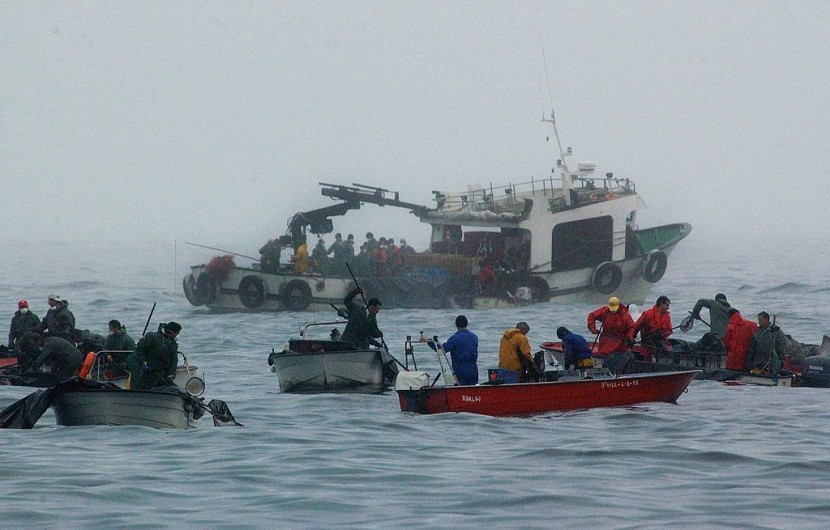
According to a Spanish official, a Spanish fishing boat sank early Tuesday in strong waves off the coast of Newfoundland, Canada, killing at least seven persons.
Villa de Pitanxo, a fishing boat with a length of 50 meters (164 feet) that operates out of the Galicia area of northwest Spain, sank in the dark about 1 am, approximately 0600 GMT. EST. Maica Larriba, Spain's regional representative, spoke on Spanish public radio. Three crew members were rescued from a lifeboat, and a search for the remaining 14 crew members was initiated amid strong waves.
Rescue Operation Continues for Spanish Fishing Boat Crew
According to the Spanish marine rescue agency, the sinking vessel's 24-member crew included 16 Spaniards, five Peruvians, and three Ghanaian employees. Alberto Nez Feijóo, the regional governor of Galicia, claimed that the Spanish envoy to Canada informed him that seven bodies had been discovered.
As reported by daily La Voz de Galicia, the vessel's 53-year-old skipper and his 42-year-old nephew were among the survivors, the two guys made phone calls to their relatives. Spanish public station RTVE, the signal from the vessel's onboard data recorder, which is used to track vessels, ceased broadcasting approximately 0600 GMT.
Helicopters, airplanes, and a rescue vessel were deployed to the location, which is 450 kilometers (280 miles) off the coast of Newfoundland, from a rescue center in Halifax, Nova Scotia, managed by Canada's air force and coast guard, NPR reported.
The rescue center's spokesperson, Lt. Cmdr. Brian Owens, said the search, which was concentrated on the sinking vessel's debris field, was hampered by high winds, rough waves, and fog.
Three Cormorant helicopters were moving in and out of the search area, while a C-130 Hercules and a provincial airlines plane were making sensor sweeps overhead, according to Owens. According to him, the Cygnus, a Canadian Coast Guard vessel, was still on its way to the debris scene, where several Spanish fishing ships were also aiding.
Read Also : China Imposes Clampdown To Control Chaotic Fan Cultures That Drives Celebrity Salaries Up
Spanish Fishing Boat Owner Didn't Respond to Inquiries
According to authorities, a Spanish fishing boat working near the sinking scene was the first to arrive and recovered three survivors and four corpses in one of the fishing boat's four lifeboats. Two of the rescue boats were believed to be empty while the fourth was reported to be missing, per RCI.
A spokesperson for the agency, Spain's marine rescue center in Madrid, Spain's capital, got the initial signal from the beacon on the Villa de Pitanxo and coordinated the early reaction with the Halifax rescue center.
Grupo Nores, the boat's owner, did not immediately respond to calls or written inquiries. The company maintains fishing fleets in the North Sea, as well as in the waters around Argentina, Canada, Morocco, Guinea-Bissau, and Senegal, according to its website.
The announcement was a devastating blow to Marin, a port town in Galicia's northern region where many people depend on the sea for a living. The drowning of the boat, according to Marin Mayor Mara Ramallo, was the community's worst tragedy ever.
Other members of the sinking vessel's 22-member crew are still being searched for, according to a Spanish government spokesperson, Isabel Rodriguez, who added that officials were closely monitoring the situation, according to the US News.
According to a spokesperson for the Spanish rescue agency, a Canadian helicopter had reached the spot, which is about 450 kilometers off the coast of Newfoundland, and a rescue vessel was on its way to the scene.
Related Article : American Airlines Flight Diverted to Kansas After Unruly Passenger Tries To Open Door on Plane, Attendant Forced To Hit Man with Coffee Pot
@YouTube
© 2025 HNGN, All rights reserved. Do not reproduce without permission.








